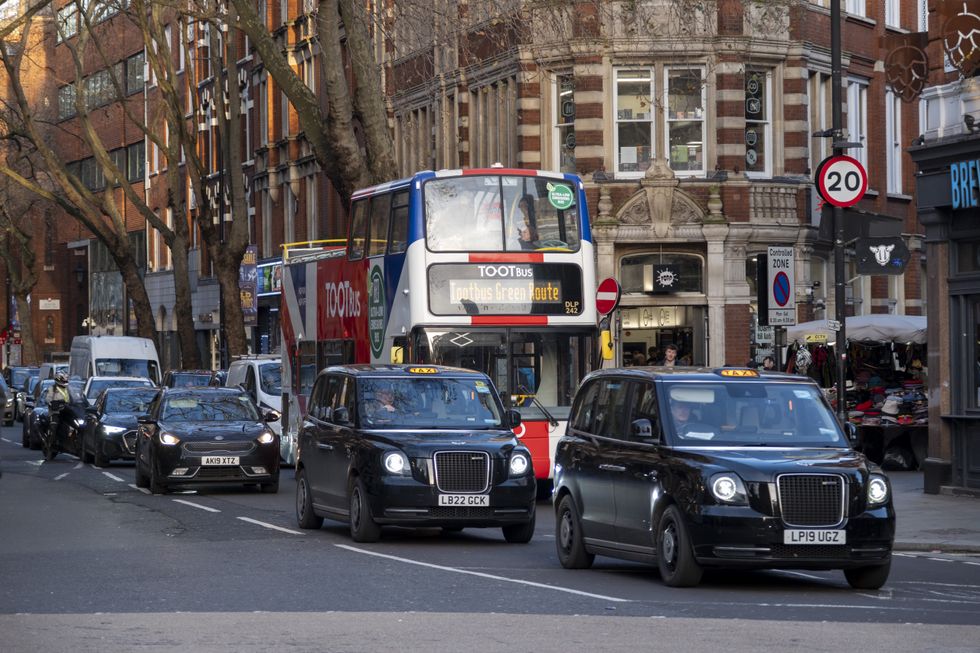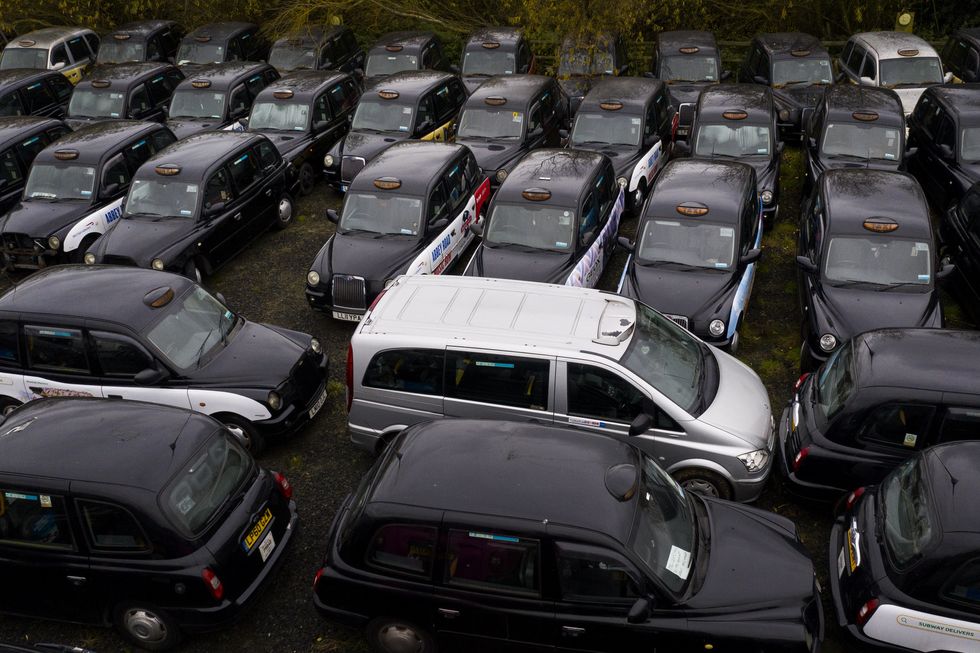Iconic London black cabs could go extinct and disappear from roads ‘by 2040’ – ‘Taken for granted!’
Drivers are warning that London’s iconic black cabs could become extinct within years as the industry undergoes changes to meet consumer demand and deal with the switch to electric.
Data from the London Assembly shows that the number of black taxis in London has fallen from 22,200 in 2013 to just 15,100 in 2023.
In comparison, the number of Private Hire Vehicles (PHV) licensed in London has grown significantly from 49,900 in 2013 to almost 90,000 last year.
The London Assembly Transport Committee met at the start of the year to examine why so many taxi drivers had left the profession over the last decade.
Do you have a story you’d like to share? Get in touch by emailing motoring@gbnews.uk

It has prompted warnings from black cab drivers and the wider industry that concerns about the electric transition and “anti-driver” road measures in the capital could lead to fewer motorists on the road.
Speaking to the Telegraph, Tom Hutley, who has been a cab driver for seven years, warned that there could be a deadline for the last cab drivers in London, saying it was at a “critical point”.
He said: “We’re currently losing around 1,000 [black cab drivers] a year, so quick scratch pad maths means there would be no more by 2040 if we keep going at this rate.
“Our unique selling point as a London taxi is that we should be available instantly. That’s the sort of price premium, to know that you can get one.
“You see it, you grab it. If that supply continues to fall away, so will demand.”
More than half of London’s black taxis are now zero emission capable, with Mayor Sadiq Khan and Transport for London praising the development of electric transport options in the capital.
Some motorists have specifically pointed to London’s Ultra Low Emission Zone (Ulez), Congestion Charge, 20mph speed limits and Low Traffic Neighbourhoods as further impediments making their jobs harder.
Steve McNamara, head of the Licensed Taxi Driver’s Association, said cabbies were being “taken for granted”, adding that cycle lanes were also having an impact on road traffic.
It comes as one of the largest manufacturers of zero emission taxis – the London Electric Vehicle Company (LEVC) – said around 45 workers would lose their jobs to “drive efficiencies”.
While it clarified that there would not be any impact on customers, sales or service, the Coventry-based manufacturer has been met with strike action in recent months.
Members of the Unite union rejected a 3.5 per cent pay rise and engaged in industrial action in June, with around 100 workers taking part.
Despite removing the Plug-in Car Grant, the Government has maintained its taxi grant, which allows motorists to get a maximum discount of 20 per cent, or £6,000, from the price of a new low emission taxi.
LATEST DEVELOPMENTS:
- UK to meet electric vehicle mandate rules despite being blamed for job losses at Vauxhall’s Luton plant
- Honda and Nissan unveil major plans to merge amid ‘dramatic changes’ despite ‘panic mode’ fears
- Local authority receives praise for returning hundreds of roads back to 30mph – ‘Making progress’

The vehicle must be a purpose-built taxi, have CO2 emissions of less than 50g/km and be able to travel at least 70 miles without any emissions.
Despite the grant helping more cabbies make the switch, there are just two eligible vehicles to choose from. These include the Dynamo Taxi and the LEVC TX.

